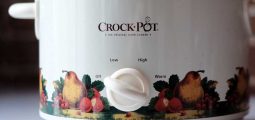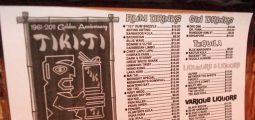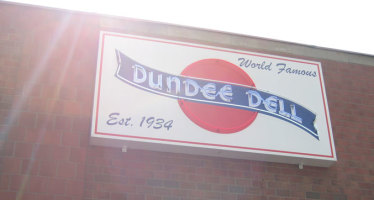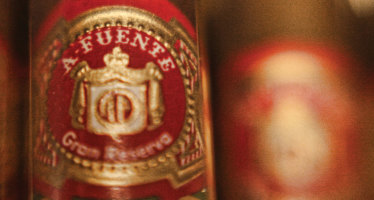Hockenbergs: In the Know
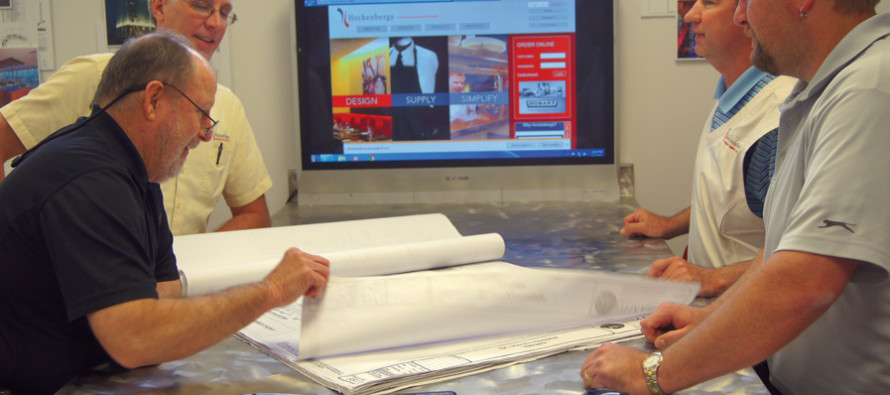
“Everybody knows Hockenbergs.”
This is the sort of comment one hears in Omaha when dropping the name of this restaurant design/supply company around anyone in a business that has a kitchen. A certain familiarity stands to reason; Hockenbergs has been around since 1908 and especially in the Midwest, that’s a heck of a lifespan. In the collectibles world, this makes you an antique. In the commercial world, it makes you really good at building and keeping a positive brand.
Hold on, you may say; successful companies don’t have to be old. Warren Buffet probably has socks older than some of the best companies out there. It doesn’t have to take a century to make a name for yourself. And yet today, Hockenbergs is still a thriving part of Omaha’s food service and restaurant biz, and there may be a few surprises in store about this company that originated in Iowa, moved to Nebraska and is spreading beautiful, well-equipped kitchens and dining rooms across the Midwest and to the coasts.
It turns out that what separates great companies from so-so ones may have everything to do with time, or at least the use of it. President, Tom Schrack Jr., says that the continued success of Hockenbergs is due to their long practice of building trust and good relationships: relationships with their customers, with their sales team members, with their vendors, and with their source manufacturers of everything from glass and table wares, to stainless ladles to recycled bamboo patio furniture, to catering carts and storage, to workhorse American-made ranges, to full restaurant and cafeteria furnishings and fittings, right down to the electronic ordering systems.
Tom Jr. says that in terms of both vendors and customers, building relationships is more important than selling a certain brand or pushing certain products or models. And as his father, Tom Schrack Sr., believed, a sense of trust is much more important than chasing a buck. And let’s face it, no supplier one can stay ahead in the business selling nothing but trendy immersion circulators. Fun fact: These extremely pricey gadgets are made for the pet technique of chefs known as sous vide, which means “under vacuum” in French. If you are going to own one, call Hockenbergs. If you are going to say it, please, for the love of all that is culinary, don’t pronounce the second s; do pronounce the d. say, “SOOO-VEED,” which is correct. Just so you don’t get laughed at. Hockenbergs wouldn’t laugh at you, they are much too polite, but I sure would. My husband always pronounces it wrong, poor thing, and I tell him, “If you can’t say it, you can’t have it.” Go ahead, practice, and maybe you’ll get your own someday.
Hockenbergs may be in the know, and it’s neither gathering dust nor growing moss. Both Tom Jr., and his brother, Tim Schrack, stress the importance of staying lean as a company, but they also attribute Hockenbergs’ particular reputation for cultivating long-time customers, wherein some 80% of their sales come from 20% of their clients. They also do a lot of education in their sales meetings, and their sales group spends a great deal of time with the manufacturers, forming a feedback loop of information that has, at its core, transparency about the products and their specs. As a result, Hockenbergs has increased sales by 20% since last year alone, has expanded to five different locations with their own sales and distribution, and completed over 500 projects last year. Someone (or someones) is/are clearly doing something right.
But what do I know? Let’s get some expertise in here, shall we? Financial writer, Bob Seawright is the Chief Investment & Information Officer for Madison Avenue Securities, and writes, in his blog “As I routinely emphasize the best performers in all probabilistic fields dwell on process. This is true for great value investors, great poker players, and great baseball players … Maintaining good process is really hard to do psychologically, emotionally, and organizationally. But it is absolutely imperative for investment and financial success.” When key team members at Hockenbergs talk about their business, from the president to his sister and Small wares Buyer, Mary Parr, it is all about process.
“As members of buying groups we are able to buy at much lower prices and pass that savings on to our customers,” says Mary. Prices are a very important part of the food biz, because the whole profitability model depends on how well things are run in the back of the house. Especially when you consider that Hockenbergs serves not only large corporate dining facilities, but also hotel chains, schools, fast food franchises, and small restaurants. “Staying competitive with pricing is really key because we are in the same business as much larger food supply companies,” says VP, Tim Schrack. Um, trends, experience, and value? Plus those humongous stainless stock pots that get a food writer all worked up? So shiny….
But hey, because it is a family business, Hockenbergs also has a practice of retaining employees for most of their working life. When the company was named “2007 Dealer of the Year” by Foodservice Equipment and Supply, it was clear that longtime relationships and training processes with their employees was a major reason they were able to build such a solid foundation. Having focused on the process with their employees and giving them a “sense of ownership and … a sense of pride in the collective success of our company” has, according to Tom Jr., helped them achieve much higher sales per employee than the industry standard. Want to work with really nice people who value you as an employee? Well, gosh, you could bring your shiny new face over there, and then you and the stock pots can have a contest.
To stay current with what’s happening in the food preparation scene, Hockenbergs relies on trade journals, large industry shows, and the current needs of their customers. As you can imagine, many things in the food industry stay the same (get food, cook it, serve it beautifully, do the dishes) but new technologies are constantly assisting chefs and their teams.
“Mostly, the technological innovations are in efficiency,” says Tim. And those techie-changes are revising the amount of energy (both human and mechanical) needed to operate large-scale kitchens and food service. It can be hard to keep up with the pace of changes in all kinds of equipment. But Hockenbergs has the experience. It’s a case of been there, found a better way to do that.
But not everybody can just pick the right range or refrigeration system out of a catalogue. No, not even an online one. “New equipment is a huge investment, even for big chains,” says, Paul Parr, the VP of Contract Sales. He points out that “not everyone realizes that here in Omaha we have a fully operational test kitchen available. Often our customers who are looking at using a particular product will come in, develop and test recipes right here.” He gestures over his shoulder at a beautiful gleaming facility at the back of their main office on F Street, just waiting to be put through its paces. Paul’s time at Hockenbergs is spent bidding for, planning and implementing full kitchen and dining designs and redesigns.
“We use some excellent new technology called Autodesk REVIT,” which is a CAD Business Information Modeling software used by architects, engineers, and contractors to design buildings and their components in 3D, draft them in 2D and track all stages of the process. “It’s quite an investment in money and time, but we wanted to provide our customers with those new options.” You may feast your eyes on layouts of countertops and prep space on the website (at Hockenbergs.com) along with full mouth-watering photo-spreads of completed projects.
But no matter what, with Hockenbergs you get something special. Flexibility and options for customers keep cropping up. Not only do they provide years of experience with projects and customers, they can offer expertise on a huge range of concerns. Paul says, “If a facility wants to go green, we have the know-how and the vendor contacts to be able to implement that, from recycled-material cups to how waste is disposed of.” They also offer food safety consulting, (and no one wants to be on reality TV, do they?) as well as receiving and inventory control systems (now where was that last shipment of curly kale, anyway?) if you want to keep track of things start to finish.
Because of their decades of experience, Hockenbergs is also able to offer a wide range of previously owned equipment which they refurbish in-house. “It helps for those that need to get functional pieces while keeping costs down,” says Tom Jr., “and we provide a full warranty. Customers will trade in big appliances, looking to upgrade and we clean them up and get them ready for re-use.”
Listen, I will probably never have an immersion circulator, but if I did, I would call these folks. I didn’t get a chance, but I should have asked, “Good grief, is there anything you guys don’t do?”
But I really think the team (and it’s weird, isn’t it? that they actually work as a team?) would have said that providing so many options for customers allows Hockenbergs to keep up with such a sous vide today, farm-to-table tomorrow kind of industry. Such a rich history of experience means that they will help their customers adapt to the next big thing, whatever that may be. What is it anyway? No seriously, what is it, because I’m pretty sure my husband is going to want one.

Ann Summers
Ann Summers is not a 40-umpthing-year old rock climber who got shut down in Boulder Canyon and drowned her failure in a microbrewery. She is neither a mother of two, a fan of Latin plant names nor a lover of fine Italian Grappa. You’ll not catch her shooting guns for fun or hollering like a redneck. She hates Shakespeare, and doesn’t call a certain fast food chain “The Scottish Restaurant.” She turns her nose up at organic yellow beets, eschews fresh oysters, and loathes chubby guinea pigs with Violent Femmes hairdos. She is also a dreadful liar
Related Articles
Omaha Standard: The Dundee Dell’s Fish ‘n’ Chips
Three-Piece Fish ‘N’ Chips – $10.95 I am no aficionado. Throughout my youth I had consumed perhaps a dozen pieces
Farine + Four Opens Its Doors
The sun rises over Leavenworth Street every morning, streaming through Farine + Four, a daytime restaurant and bakery. Arriving at
Smoking-Hot Summer Tobacco Legislation
Unbeknownst to many local tobacco lovers, two new tobacco laws have come from the Nebraska Legislature this summer. One of
No comments
Write a commentOnly registered users can comment.






